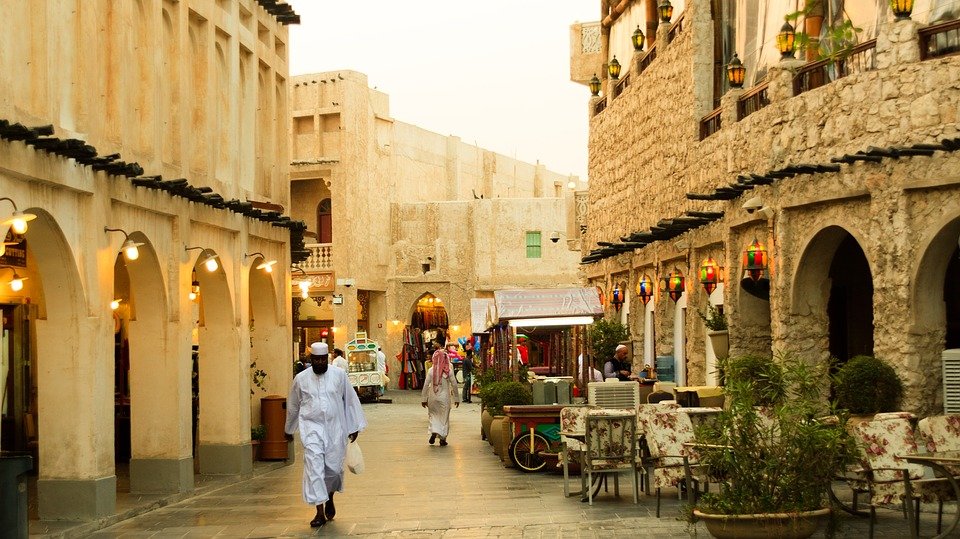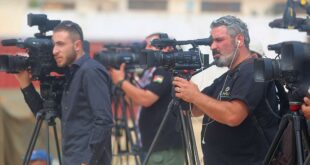Issue 25, winter/spring 2018
https://doi.org/10.70090/GG18QCAJ
Abstract
This study examines the coverage of the Yemeni crisis, before and after the outbreak of the Gulf crisis, by Al-Jazeera English news websites. It aims to identify any existing variation in Al-Jazeera’s news coverage with respect to the Yemeni crisis, thus examining the degree to which Al-Jazeera maintains its independence from Qatari influence in its coverage of events in Yemen. The study begins by first mapping both the Yemeni War and the Qatari crisis, followed by a discussion of data collection and analysis. Data were collected from the Al-Jazeera English official website. Because the Qatari crisis has been of considerably shorter duration than the Yemeni war, data were collected over two phases to ensure rigorous comparison of the content for both events. Based on the obtained results, negative news coverage of the war in Yemen increased significantly after the start of the Qatari crisis with respect to the role of the Saudi-led coalition in Yemen’s current war. However, overall coverage of the Yemeni war has increased tremendously over the same period.
Introduction
The freedom and independence of the press is essential in any functioning democracy. There is an extensive body of literature on the importance of freedom of the press (Curran 2002 & 2005). Most of these scholarly works, however, focus on freedom of the press in covering domestic issues and pay little attention to the freedom with which host governments allow media outlets to cover foreign events. Moreover, few scholarly works address transnational media outlets with outreach beyond the national borders of their home countries (El-Nawawy & Iskander, 2003; Miles, 2010; Lynch, 2006; Zayani, 2005). Al-Jazeera’s coverage of the Yemeni crisis presents an interesting opportunity to study the autonomy of media outlets in covering a foreign crisis. Did Al-Jazeera simply rally behind the national flag of Qatar—as do many media outlets, even in liberal democracies—or did the organization show higher levels of professionalism in this regard?[i] This study examines the coverage of the Yemeni crisis, before and after the outbreak of the Gulf crisis, by Al-Jazeera English news websites. It aims to identify any existing variation in Al-Jazeera’s news coverage with respect to the Yemeni crisis, thus examining the degree to which Al-Jazeera maintains its independence from Qatari influence in its coverage of events in Yemen. The study begins by first mapping both the Yemeni War and the Qatari crisis, followed by a discussion of data collection and analysis.
The War in Yemen
The current war in Yemen is rooted in the Yemeni uprisings of early 2011, when local youth activists took to the streets demanding regime change. Indeed, this unrest occurred during an astonishing movement of Arab youth that took the world by surprise (Fattah 2011; Schmitz; Haykel 2011). Regional and international actors reacted to the Arab Spring movement with various degrees of political response ranging from restrained support to strong concern. The response of the Gulf Cooperation Council (GCC) was orchestrated by the Kingdom of Saudi Arabia, the key leader within the GCC. The Saudis were extremely concerned about the rapidly unfolding events in Egypt, Bahrain, and Yemen.[ii] The oil-rich kingdom swiftly condemned mistreatment of President Mubarak of Egypt and deployed military troops to support the Bahraini monarchy against Shi’a protests, fearing Iranian intervention on the Arabian Gulf island. In Yemen, the Saudis acted through heavy diplomatic intervention by the GCC in an attempt to help Yemen avoid a civil war.[iii] These diplomatic efforts, backed by the international community through the United Nations, initially succeeded in developing a plan called the Gulf Initiative, which called for an orderly and peaceful transition of power. As a result, former President Ali Abdullah Saleh agreed to step down on the condition of immunity from future prosecution, paving the way for the election of Vice President Abdu Rabbu Mansour Hadi as a consensus candidate in February 2012. The Gulf Initiative also stipulated a transitional period during which a national dialogue among all Yemeni political actors would outline a new constitution and political system.
During the national dialogue, Yemen's decision to pursue peaceful solutions to its chronic political, security, and economic problems was praised as a model of peaceful conflict resolution for other Arab Spring states. However, the national dialogue failed to save Yemen from war. Failure of the national dialogue has, over the last five years, exacerbated Yemen’s chronic humanitarian, political, and security problems. Although this failure is a multifaceted problem, Saleh’s Machiavellian character also contributed substantially to Yemen’s destabilization. Immediately after stepping down, Saleh established an alliance with the Houthis, his former enemy, with the ultimate goal of undermining Yemen’s overall democratic transition.
The Hadi government was politically vulnerable and failed to uphold the political aspirations of Yemeni youth activists. Between 2012 and 2014, deterioration in essential areas such as security and economic conditions allowed the alliance of Saleh and the Houthis to systematically seize control of Yemeni cities. The Houthis entered the capital city of Sana’a on September 21, 2014 and within three months succeeded in placing President Hadi and newly chosen Prime Minister, Khalid Bahah, under house arrest. However, President Hadi managed to escape from house arrest in Sana’a and flee to Aden, where he declared the withdrawal of his resignation submitted earlier under pressure from the Houthis. Despite his apparent political weakness and absence of strong allies, President Hadi represented the last obstacle to control of Yemen by the Saleh-Houthis alliance. Hadi is the legitimate democratically-elected president of Yemen and enjoys considerable support from the international community, including the GCC. Following his escape to Aden, the Saleh-Houthis alliance attacked the city and targeted Hadi with military air strikes. President Hadi once again managed to escape, fleeing from Aden to Oman and subsequently declaring war against the Houthis and calling for military support from the GCC.
During this time, Saudi Arabia witnessed the death of King Abdullah ben Abdul-Aziz and the smooth ascension of King Salman, who showed great concern for the growing regional hegemonic power of Iran. In response to Hadi’s call for intervention, King Salmam announced a new military coalition to target the Saleh-Houthi forces and help Hadi’s forces liberate Yemen from the Iranian backed militias. Operation “Decisive Storm”, as it was called by the Saudi king, initiated military attacks against the Saleh-Houthi forces on March 26, 2017 and initially succeeded in liberating Aden and containing Saleh-Houthi forces in several areas of Yemen. The Saudi-led military coalition has imposed a strong blockade on Yemen’s sea and airports, which has isolated the country from the rest of the world with very limited points of exit controlled primarily by the Saudi-led coalition. By fighting Saleh’s forces, the Kingdom has alienated the former president who was once a key ally to whom they provided tremendous support.
Key members of the Saudi-led military coalition included the United Arab Emirates, Qatar, Sudan, Bahrain, Morocco, and Egypt. The Qatari government had sent approximately 1000 ground troops to fight against the Saleh-Houthi alliance; however, after the outbreak of the Qatari crisis in June 2017, the coalition ended the Qatari military support and ordered the withdrawal of Qatari ground troops from Yemen. It is unclear at this time whether the withdrawal has hindered coalition military operations in Yemen.
The Qatari Crisis
Since the late 1950s, several attempts to establish political unity among Arab states have failed miserably. However, for more than three decades the Gulf Cooperation Council (GCC)—established in the early 1980s—has demonstrated that political and economic cooperation between Arab states is an achievable objective. The GCC countries share similar cultural and political features, including similar social structures and governance primarily by traditional monarchies, and most have enjoyed significant economic growth since the mid-1970s. Although the GCC has been primarily concerned with outward regional threats posed by regimes such as those of Saddam Hussein in Iraq and the Islamic government in Iran, the current Gulf crisis is the most serious inward security challenge faced by the GCC since its inception. The crisis has led to an unprecedented economic boycott of the Qatari government by Saudi Arabia and the United Arab Emirates, depriving Qatar of basic food products. Because of the Qatari dependence on trade with GCC countries, these economic sanctions resulted in negative impacts during the early weeks before Qatar accessed alternative markets in Turkey and Iran.
Several factors have contributed to the Qatari crisis, which could be viewed as a consequence of attempts by the Qatari government to establish an independent foreign policy. Since ascending to power in a white coup, former Qatari prince Hamad ben Khalifa has adopted a number of modernization policies and political reforms, including divergence from Saudi foreign policy (see also Friedman 2012; Khatib 2013). The Qatari government has increased its autonomy with respect to foreign policy, taking some intriguing steps such as establishing low-level diplomatic contacts with Israel, hosting the Doha World Trade Summit in 2001, and permitting establishment of a United States military base in Qatar before the invasion of Iraq that remains in operation. Qatar has also adopted a greater role in regional politics through heavy use of its soft power. The nation has hosted several peace negotiations to end military and political conflicts, such as the crisis in Darfur. Increased Qatari involvement in regional politics has diminished its long-standing acquiescence to Saudi foreign policy.
In addition, the establishment of Al-Jazeera Arabic television has caused major concern for many Arab governments, including those of GCC countries that have long enjoyed tight control of public media regarded as sole sources of information and news (Dabashi, 2012; Davidson, 2013; Kamrava, 2013; Roberts, 2012; Ulrichsen, 2011).[iv] Al-Jazeera’s coverage of issues such as economic sanctions imposed on Saddam Hussein’s regime during the 1990s was enormously polarizing, as the Arabic population began to participate in public discourse through Al-Jazeera’s controversial talk shows on the merits of such sanctions. The issue has been a topic of heated debate because hundreds of thousands of innocent Iraqi civilians, including women and children, have died as a result of malnutrition. Nevertheless, GCC members including Kuwait and Saudi Arabia remained adamant advocates for continued sanctions against the Iraqi regime. They viewed Al-Jazeera’s coverage of the Iraqi issue throughout the 1990s, up until the United States invasion of 2003, as a tool enabling Saddam Hussein’s regime.
Despite such seemingly strained relations, the GCC maintained its political coordination and economic cooperation until the Arab Spring, which became a source of increased political contention between Qatar and its GCC allies. As Al-Jazeera continued its substantial coverage of the Arab Spring protests, including popularization of slogans such as the “people want to change the regime,” it has become the unofficial media champion of the Arab Spring movement. Furthermore, the Qatari government adopted pro-Arab Spring policy that supported Arab youth activists and their apolitical aspiration for political liberalization. Qatar’s support of the Muslim Brotherhood in Egypt—which appeared as the key player in the post-Mubarak era—was a key point of political contention between Qatar and two central GCC actors, Saudi Arabia and the UAE. The UAE became extremely troubled by the upsurge of Islamist power as a result of the Arab Spring, believing the election of Mohammed Morsi as the president of Egyptian would challenge the overall political stability in the region. Conversely, Saudi Arabia expressed grave concern about the mistreatment of former President Mubarak and the call for Mubarak’s resignation by American President Barack Obama.
Finally, the Arab Spring allowed Iran to exert increasing regional power within the Arab Middle East. In addition to its established influence in Iraq during the post-Saddam Hussein era, Iran developed strong political and military influence through direct and indirect military presence in Lebanon, Syria, and Yemen. Iranian political ambitions of regional dominance are viewed by many in the GCC as direct existential threat to the Arab Gulf monarchies. Thus, Saudi Arabia and its anti-Qatar allies—the United Arab Emirates, Bahrain, and Egypt—imposed a retaliatory boycott in June 2007 after accusing Qatar of engaging in a close relationship with the Iranian regime. The Qatari government responded to the accusation in August 2017 by announcing full normalization of diplomatic relations with Iran.
The United States, through President Trump and Secretary of State Rex Tillerson, initially issued some contradictory messages. Secretary Tillerson later expressed increasing concern about the escalation of the Qatari crisis and urged all parties to seek a quick resolution of their political differences. Despite increasing calls from Western GCC allies to resolve the situation, there is currently no clear path toward a potential solution. The Qatari government has stated unequivocally that it will not accept any political demand that would breach its national sovereignty.
The Gulf crisis has also revealed a regional strategy promoted by Saudi Crown Prince Mohammed Ben Salman, who has implemented a number of policies addressing both domestic and regional challenges. Resolution of the Yemeni war is regarded as an essential component of the overall Saudi strategy to confront the growing Iranian influence in the region.
The Data
Data were collected from the Al-Jazeera English official website. Because the Qatari crisis has been of considerably shorter duration than the Yemeni war, data were collected over two phases to ensure rigorous comparison of the content for both events. As a result, this study does not cover the early period of the Saudi-led coalition war from March 26, 2015 until November 30, 2016. The first phase of data collection included the period from June 1, 2017 to November 30, 2017, and the second included the period from December 1, 2016 to May 31, 2017. Data collection included only news articles where the Al-Jazeera editorial board was directly responsible for the content, which means that personal opinion articles where individual authors were responsible for the ideas, content, and analysis were excluded.[v] Al-Jazeera English has often published news regarding the Yemeni war under columns titled “Yemen”, “Middle East” or “Conflict”, and in a few cases under other columns such as “Humanitarian”.
The key issues covered by the Al-Jazeera English website can be categorized as generally related to the humanitarian crisis, civilian casualties, and other issues. The first category relates to coverage of the severe humanitarian crises in Yemen including hunger, cholera, and other epidemic decease. Indeed, the humanitarian crisis has been exacerbated since the Houthis assumed control of Sana’a on September 21, 2014. This humanitarian crisis has received news coverage by several globally leading media outlets, highlighting grave concerns expressed by international organizations such as the World Health Organization (WHO), the United Nations Children’s Fund (UNICEF), and Doctors Without Borders. Millions of Yemeni citizens were in grave danger of starvation when the government failed to pay employee salaries for several months, and Al-Jazeera news coverage often included calls from the representatives of the United Nations and other international community members expressing serious concern about the humanitarian situation in Yemen.
The second category involved coverage of civilian causalities, which in some cases also included reports of violence caused by actors other than the Houthis or the Saudi-led coalition, such as terrorist organizations. A few reports also focused on civilian casualties of the United States’ covert operation targeting Al-Qaeda in Yemen. Finally, the third category encompasses other news coverage on Yemen addressing various issues other than the humanitarian crisis and civilian causalities. The articles collected often varied in length from very short to very long. Authors’ names appeared with some articles, however others did not identify their authors.
Analysis
Al-Jazeera’s coverage of the Yemeni crisis was analyzed using qualitative content analysis tools, as well as more rigorous content analysis that required the researcher to read all collected news articles rather than simply searching for specific words or terms with positive or negative connotations. Articles were categorized through evaluation of their contents against four basic questions: (1) Does this news article adopt a negative view of the Saudi-led coalition?; (2) Do the contents of this news article hold the Saudi-led coalition responsible for Yemen’s exacerbated economic, humanitarian, and political problems?; (3) Do the contents of this news article hold the Houthi-Saleh coalition responsible for Yemen’s exacerbated economic, humanitarian, and political problems?; and (4) Do the contents of this news article use language or include concepts that suggest delegitimization such as rebels, militia, or aggression? The answers to these questions were grouped through a process of systematic coding. News reports were coded as “negative” if they included bias against the Saudi-led coalition. Articles were coded as “positive” if they included bias against the Houthis, the enemies of the Saudi-led coalition. News articles that presented either general neutral information or biases directed against other actors such as the United States or Al-Qaeda in Yemen were coded as “neutral”.
Table 1:
A Summary of Al-Jazeera’s Coverage of Yemen’s War (12/01/2016-05/31/2017)
| Issues | Positive
No. of articles |
Negative
No. of articles |
Neutral
No. of articles |
Total |
| Humanitarian Issues | 1 | 0 | 14 | 15 |
| Civilian Causalities | 5 | 3 | 15 | 23 |
| Others | 14 | 1 | 10 | 25 |
| Total | 20 | 4 | 39 | 63 |
Source: Compiled by the author from www.aljazeera.com
Tables 1 and 2 describe the categorization of news coverage before and after the breakout of the Qatari crisis, respectively. Table 1 shows the categorization of news articles before the start of the Qatari crisis. The first column includes the categorization of news articles reporting on humanitarian issues such as outbreaks of epidemic diseases and lack of food, about civilian causalities as a direct result of war violence, and other issues related to the current war in Yemen. The remaining columns indicate whether the news articles were coded as positive, negative, or neutral. As shown in Table 1, 63 news articles were devoted to coverage of the current war in Yemen. Of these, 39 news articles were coded as neutral, which represents more than half of the total news articles. Only 4 news articles were coded as negative with respect to reporting about the Saudi-led coalition. Twenty news articles were coded as positive, holding the Houthis responsible for the humanitarian crisis, civilian causalities, and other war-related problems in Yemen.
Table 2 summarizes the categorization of news coverage after the breakout of the Qatari crisis. A total of 142 news articles were identified, an increase of more than 125% compared with news coverage on Yemen during the six months before the Qatari crisis began. Of these, 65 news articles were coded as negative with respect to bias against the Saudi-led coalition, which is a highly significant increase compared with the volume of reports before the Qatari crisis. Twenty-eight news articles were categorized as positive, blaming the Houthis for the humanitarian crisis and civilian causalities in Yemen, which represents a moderate increase in the volume compared with the number of reports about the current war in Yemen before development of the Qatari crisis.
Table 2:
A Summary of Al-Jazeera’s Coverage of Yemen’s War (06/01/2017-05/31/2017)
| Issues | Positive
No. of articles |
Negative
No. of articles |
Neutral
No. of articles |
Total |
| Humanitarian Issues | 7 | 20 | 29 | 56 |
| Civilian Causalities | 6 | 29 | 5 | 40 |
| Others | 15 | 16 | 15 | 46 |
| Total | 28 | 55 | 49 | 142 |
Source: Compiled by the author from www.aljazeera.com
Conclusion
Based on these results, negative news coverage of the war in Yemen increased significantly after the start of the Qatari crisis with respect to the role of the Saudi-led coalition in Yemen’s current war. However, overall coverage of the Yemeni war has increased tremendously over the same period. Two significant factors have contributed to this increased news coverage, the outbreak of a cholera epidemic and the tightening of the Saudi blockade of Yemen following the firing of a ballistic missile targeting the Saudi capital, Riyadh, by the Houthis in early November 2017. Although this study does not show conclusive evidence that the Qatari crisis has considerably influenced coverage of the current war in Yemen by Al-Jazeera English, there are indications that coverage of both the humanitarian crisis and civilian casualties have increased. But since the severity of the Yemeni humanitarian crisis has not been exacerbated overnight, its sudden increased coverage by Al-Jazeera English following the Qatari crisis would probably raise some legitimate concerns regarding such questions as whether Al-Jazeera English has been guilty of selection bias. In this regard, it could be argued that Al-Jazeera English might have decided to rally behind the national flag of Qatar through its selective coverage of the Yemeni crisis, a similar trend that can also be found among media outlets in liberal democracies during foreign crises.
 Arab Media & Society The Arab Media Hub
Arab Media & Society The Arab Media Hub





